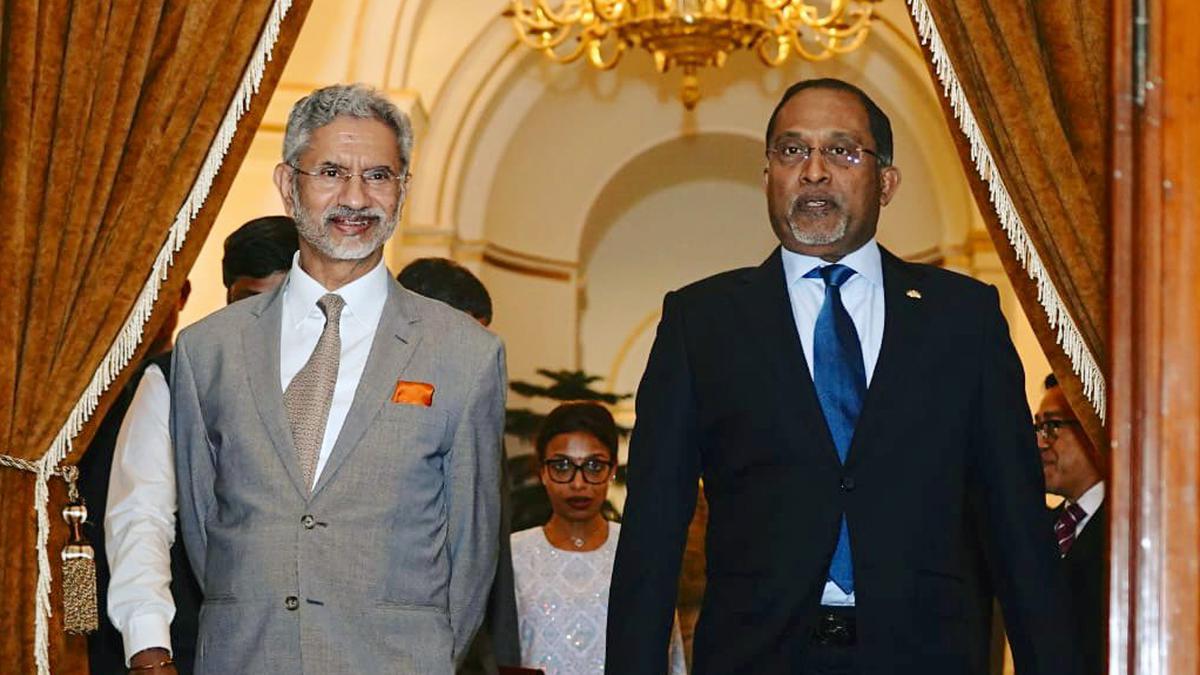
India, Malaysia looking at reviewing 2011 trade pact: Malaysian Foreign Minister Kadir
The Hindu
India and Malaysia are firming up a framework to conduct trade in national currencies and review the 12-yr CECA to include new domains. EAM Jaishankar and Malaysian FM discussed ways to boost ties, incl. defence cooperation. India provided 170,000 metric tonnes of non-basmati rice to Malaysia. FM Kadir said ASEAN doesn't want SCS to become a "flashpoint" for "big power" competition. India and Malaysia are finalising the framework for conducting trade in national currencies. CECA covers trade in goods, services, investments and movement of people. Malaysia interested in expanding defence cooperation with India, incl. procuring military platforms and hardware.
India and Malaysia are firming up a framework for conducting trade in national currencies and initiating a process to review the 12-year-old comprehensive economic cooperation agreement to include new domains and items, Malaysian Foreign Minister Zambry Abdul Kadir said.
At the end of a three-day visit to India, Mr. Kadir told PTI that both sides are keen to expand trade engagement in new and emerging areas such as electronics, semiconductors, fintech, renewable energy, new technology and startups.
Ways to further boost the overall trajectory of ties were discussed extensively during talks between External Affairs Minister S. Jaishankar and his Malaysian counterpart on Tuesday night.
Asked about India's long-pending demand to Malaysia to extradite fugitive evangelist Zakir Naik, Mr. Kadir did not give a direct reply and said Kuala Lumpur is keen on strengthening institutional mechanisms to boost security cooperation rather than focusing on any individual.
Mr. Naik is facing a multi-agency probe in India on a variety of charges, including terror-related activities and inciting extremism through hate speeches. He left India in 2016.
Mr. Kadir also expressed Malaysia's gratitude to India for providing 170,000 metric tonnes of non-basmati white rice recently when the country was reeling under shortage of rice.
India banned export of non-basmati white rice in July, but the restriction was lifted for a small number of countries last month.

 Run 3 Space | Play Space Running Game
Run 3 Space | Play Space Running Game
 Traffic Jam 3D | Online Racing Game
Traffic Jam 3D | Online Racing Game
 Duck Hunt | Play Old Classic Game
Duck Hunt | Play Old Classic Game